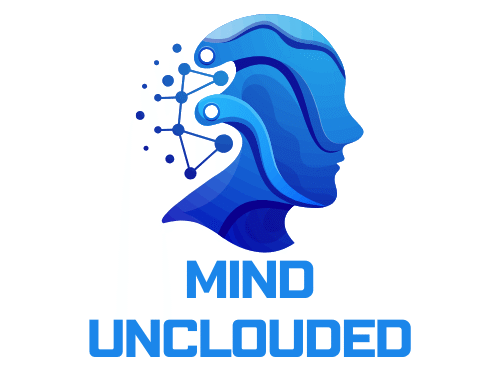Introduction and Scope
Supporting an adult child struggling with depression, including understanding how to help an adult child with depression, involves more than therapy visits; it requires a holistic approach that nurtures mind, body, and spirit. Drawing from years of experience in mental health advocacy and family counseling, this guide delves beyond basic online therapy and telepsychiatry tips to explore emotional, physical, social, and self-care dimensions.

In this guide, we will explore how to help an adult child with depression by examining various support strategies and resources.
You’ll learn how telehealth services and group therapy complement traditional psychiatric counselling, discover digital mental health support tools, and consider innovative treatments such as ketamine therapy and neuropsychology testing.
By the end, parents will understand how to craft long-term wellness plans tailored to their family’s unique needs, setting the stage for sustainable adult-child depression support.
Recognizing Multifaceted Needs
Depression in adult children often disrupts their emotional, physical, social, and spiritual well-being. As a licensed family therapist with over a decade of experience, I’ve observed mood swings, persistent sadness, and cognitive fog signaling emotional distress, while fatigue, sleep disturbances, and appetite changes reveal physical impacts. Social withdrawal, strained relationships, and reduced engagement in group therapy or community events highlight social effects, and a loss of purpose or hope reflects spiritual needs.
Recognizing these multifaceted needs, beyond what standard psychiatric counseling or neuropsychology testing covers, allows parents to tailor depression support, blending telehealth services, online therapy, and even IV ketamine therapy for treatment-resistant depression.
Emotional Support Strategies
Emotional support starts with empathy-driven conversations that make your adult child feel heard and understood. Utilizing techniques honed through extensive clinical practice, such as gentle open-ended questions (“How have you been feeling lately?”) and reflective listening, can validate and normalize feelings. Encourage them to share without judgment, whether in person or via online therapy sessions on trusted telepsychiatry platforms.

Group therapy can also offer peer connection when they’re ready to engage socially. Between sessions, send supportive messages or suggest digital mental health support tools, like mood-tracking apps or guided meditation, that reinforce coping skills. Personalized treatment plans crafted by licensed clinical staff ensure their emotional needs are met consistently. Remember, your calm presence and patient listening lay the foundation for deeper healing.
Physical and Practical Assistance
Helping with daily tasks can ease physical strain and show you care. Drawing from practical caregiving strategies, offer to handle chores like laundry, dishes, or grocery shopping when depression makes them overwhelming.
Suggest simple meal preparation together—healthy, balanced dishes support nutrition and mood. Encourage regular sleep routines by setting consistent bed and wake times. A short walk or light exercise, even at home, can boost energy and reduce fatigue.
If low motivation persists, explore teletherapy platforms that include guided activity planning. Practical assistance, coupled with empathy, reinforces that you’re in this together, strengthening your adult child’s trust and creating a stable foundation for their recovery journey.
Social Reintegration and Community Engagement
Social reintegration helps your adult child rebuild connections and find purpose. Based on successful community engagement models, encourage small steps, like joining a local support group or attending a virtual peer forum, to reduce isolation. Suggest group teletherapy sessions where they can share experiences and learn coping skills together. Invite them to family gatherings or casual outings, respecting their comfort level and allowing breaks when needed.

Online support communities offer 24/7 understanding, with moderated forums and guided discussions. Helping them explore volunteer opportunities or hobby clubs can reignite interests and boost self-esteem. Celebrate each positive interaction, no matter how small, and remind them that rebuilding social ties is a gradual process. Your encouragement and presence make community engagement feel safe and empowering.
Educational and Resource Provision
Building a strong foundation starts with reliable information and practical tools. Curate trusted resources—like NIMH guides, online depression self-assessment quizzes, and articles on CBT techniques—to help your adult child understand their experience.
Teach simple coping skills: mindfulness exercises, journaling prompts, and goal-setting worksheets that they can use between therapy or telepsychiatry sessions. Share digital mental health support tools—mood-tracking apps or guided meditation platforms—to reinforce daily practice. Encourage them to explore virtual family therapy sessions or group teletherapy for peer learning.
By combining educational materials with actionable exercises, you empower your child to take an active role in their healing and build lasting wellness habits.
Technology-Mediated Care
Technology-mediated care makes support more accessible and flexible. Encourage your adult child to try telepsychiatry appointments with licensed providers from home. These online therapy sessions fit busy schedules and reduce travel barriers.
Recommend mood-tracking apps or wearable devices that send gentle reminders for self-care activities and track sleep, activity, and mood patterns. Introducing video-based group teletherapy can blend social support with expert guidance, helping them feel less alone. Teach basic telehealth etiquette—finding a quiet space, testing audio, and setting clear goals before each session.
By combining digital tools with professional care, you help your child build a consistent routine, stay engaged in treatment, and use technology as a bridge to lasting wellness.
Family Dynamics and Cultural Sensitivity
Family dynamics and cultural sensitivity shape how adult children experience and express depression. Acknowledge family beliefs and traditions—whether about mental health, privacy, or seeking help—and adapt your support accordingly. Open conversations about cultural stigma can break down barriers, making telehealth services and online therapy feel more acceptable. In families with strong communal values, involve trusted relatives or community leaders in awareness, while respecting your child’s autonomy.
For families valuing independence, emphasize self-guided digital mental health tools and one-on-one group teletherapy options. Tailoring communication styles—choosing language that feels familiar and supportive—helps your child feel understood. By blending cultural respect with empathy, you strengthen trust and create a truly safe space for healing.
Coordinated Professional Collaboration
Coordinated professional collaboration means teaming up therapists, psychiatrists, primary-care providers, and case managers to create a unified treatment plan for your adult child’s depression. Start by sharing assessment results—like neuropsychology testing findings—with all providers so everyone understands their cognitive and emotional needs.
A behavioral health care manager can track progress, update treatment goals, and ensure that medication adjustments by psychiatrists align with therapy strategies. Regular case conferences or virtual check-ins help address challenges quickly, preventing gaps in care. Integrating complementary treatments—such as IV ketamine therapy for treatment-resistant depression—requires clear communication about side effects and follow-up plans.
Including family therapists and peer support specialists offers broader perspectives and can strengthen social reintegration efforts. Ultimately, this team-based approach boosts treatment adherence, improves quality of life, and supports long-term wellness planning for your adult child.
Long-Term Wellness Planning
Long-term wellness planning means setting realistic goals and celebrating each milestone on your child’s journey. Work together to choose small, achievable targets—like attending one weekly support group or filling out a mood journal every evening.
Track progress with simple charts or apps, and review successes and challenges in calm, regular check-ins. Adjust goals as needed—if weekly outings feel overwhelming, try monthly or virtual meetups instead. Encourage your adult child to take ownership of their plan, fostering independence.
By breaking recovery into manageable steps and acknowledging every victory, you build confidence and sustain motivation for ongoing adult-child depression support.
Parent Self-Support and Resilience Building
Supporting yourself as a parent is just as important as helping your child. First, seek out caregiver workshops or support groups—online or in person—where you can share experiences and learn coping strategies. Schedule regular self-care routines: short daily walks, relaxation exercises, or mindfulness sessions to recharge.

Parent Self-Support
Keep a personal journal to process feelings and track your progress. Don’t hesitate to lean on trusted friends or a therapist when you need an outlet. Remember to set boundaries: allocate specific times for caregiving tasks and separate time for your hobbies and rest.
By prioritizing your resilience, you’ll stay emotionally strong and better equipped to support your adult child’s recovery.
Conclusion
Here are key emergency and community resources to keep on hand:
- 988 Suicide & Crisis Lifeline: Call, text, or chat 988 any time for free, confidential support across the U.S.
- NAMI Family Support Group: Peer-led sessions for caregivers to share experiences and gain coping skills.
- NAMI HelpLine: One-on-one emotional support and referrals, M–F, 10 AM–10 PM ET at 1-800-950-NAMI (6264).
- SAMHSA FindTreatment.gov: Confidential directory of mental-health and substance-use treatment providers nationwide.

